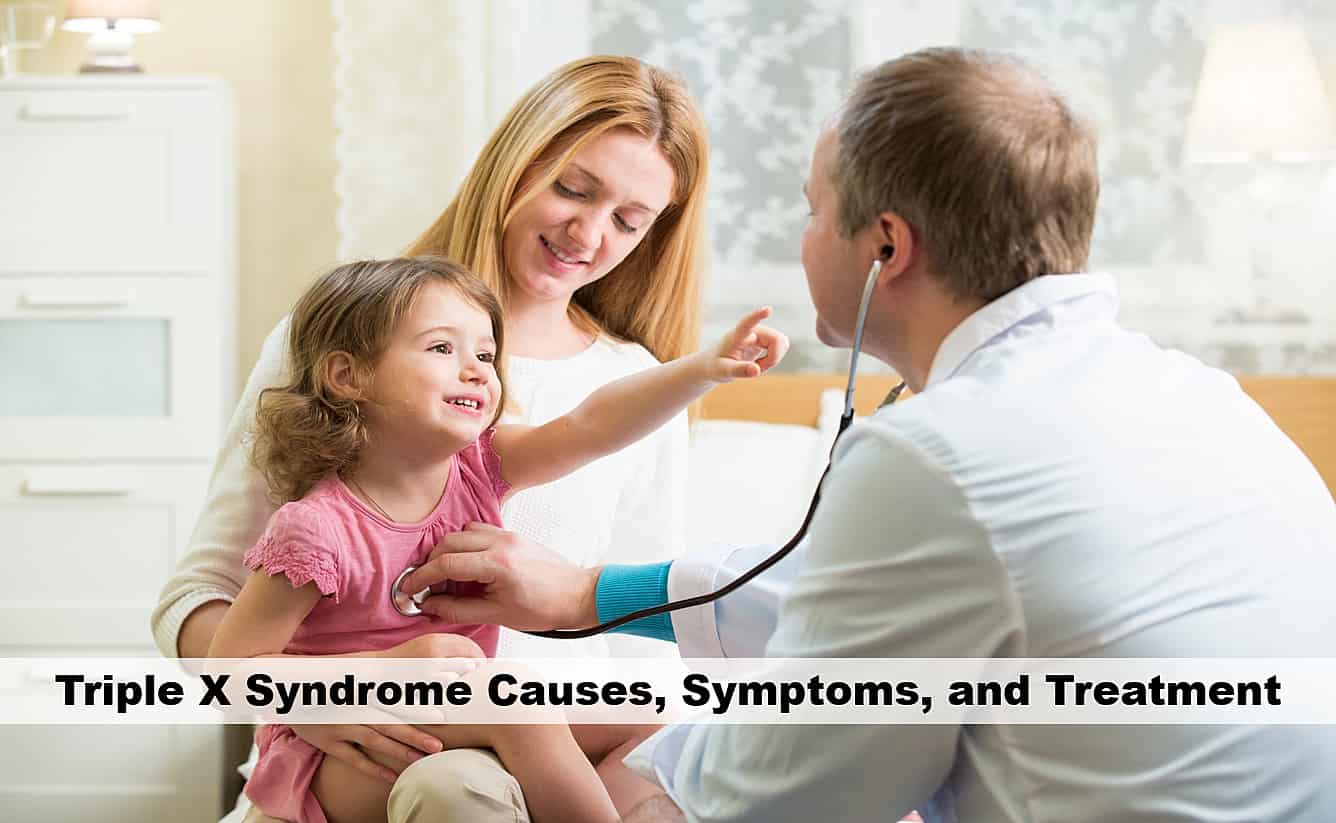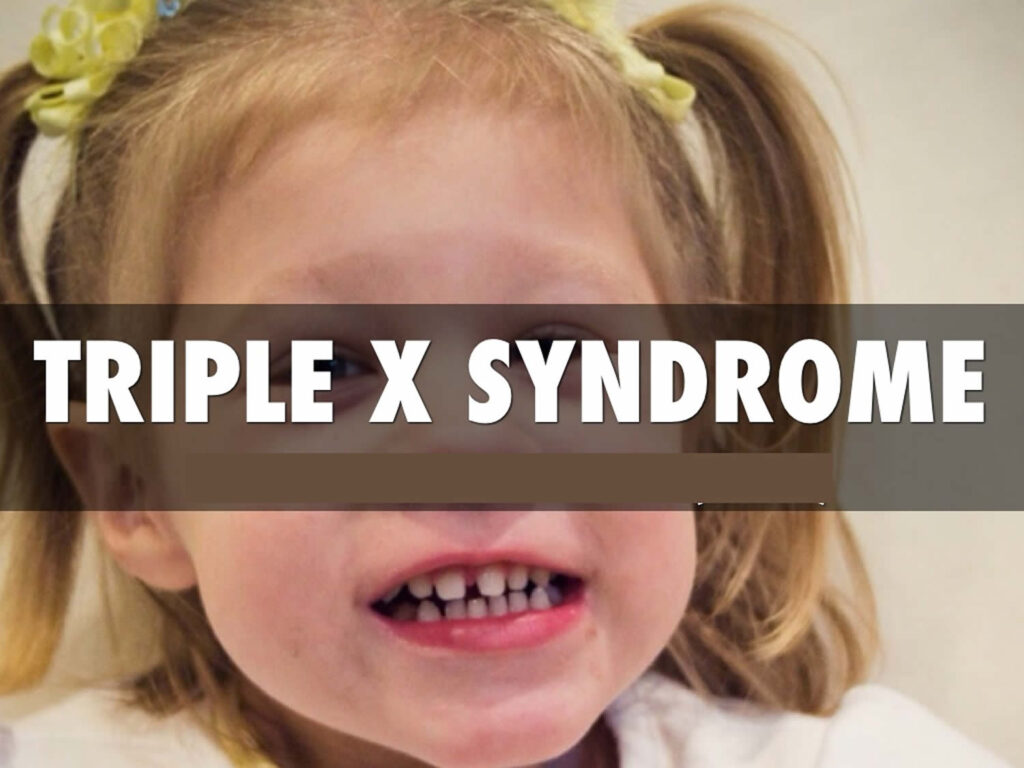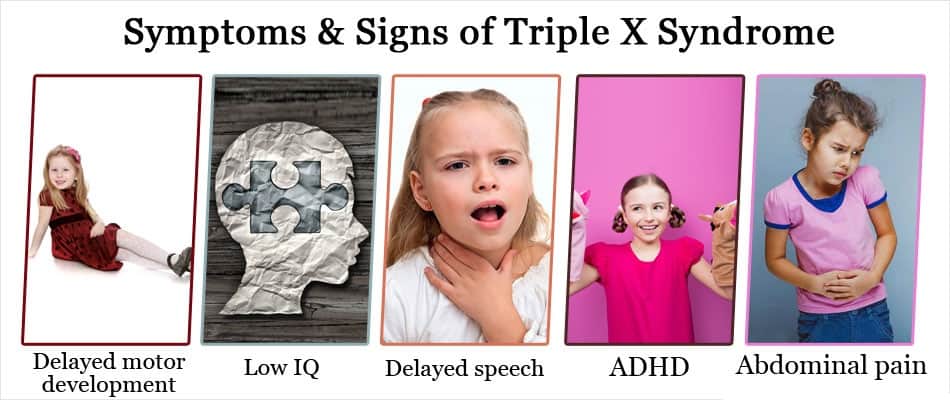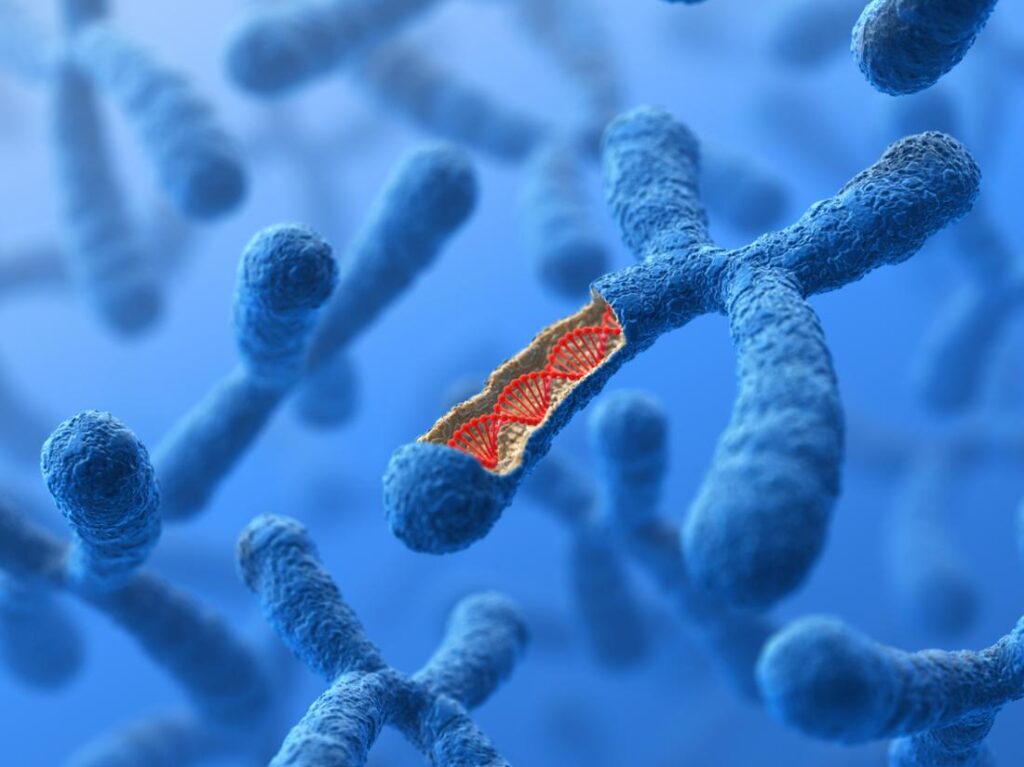WHAT IS TRIPLE X SYNDROME?
Triple X syndrome, otherwise known as trisomy X or 47 XXX, is a hereditary disorder that affects about 1 in 1,000 females. Females generally have two X chromosomes in all cells — one X chromosome from per parent. A female suffering from triple X syndrome has three X chromosomes.
Many girls and women with triple X syndrome do not have any symptoms or have only mild symptoms. In other cases, symptoms might be more apparent — possibly including developmental delays and learning disabilities. Seizures and kidney abnormalities happen among a small number of girls and women suffering from triple X syndrome.
The treatment for triple X syndrome depends upon what symptoms, if any, are present and their seriousness.

SYMPTOMS
Signs and symptoms could differ greatly among girls and women suffering from triple X syndrome. Many do not experience any noticeable effects or have only mild symptoms.
Being taller than the average height is the most common physical feature. Most females suffering from triple X syndrome experience normal sexual development and have the ability to get pregnant. Some girls and women suffering from triple X syndrome have intelligence in the normal range, but possibly slightly lower when compared with siblings. Others might have intellectual disabilities and sometimes might have behavioral problems.
Occasionally significant symptoms might happen. If signs and symptoms are present, they are usually variable. Signs and symptoms in girls and women suffering from triple X syndrome might include an increased risk of:
- Delay in the development of speech and language skills, and motor skills, like sitting up and walking
- Learning disabilities, like trouble with reading (dyslexia), understanding or math
- Behavioral problems, like attention-deficit/hyperactivity disorder (ADHD) or symptoms of autism spectrum disorder
- Psychological problems, like anxiety and depression
- Issues with fine and gross motor skills, memory, judgment, and information processing
Sometimes triple X syndrome might be related to these signs and symptoms:
- Vertical folds of skin that cover the inside corners of the eyes (epicanthal folds)
- Widely spaced eyes
- Abnormally curved pinky fingers
- Flat feet
- Abnormally shaped breastbone
- Weak muscle tone (hypotonia)
- Seizures
- Kidney abnormalities
- Premature ovarian failure or ovary abnormalities
- Developmental delays

WHEN SHOULD YOU SEE A DOCTOR?
If you are concerned about your child’s development, schedule an appointment to talk with your family doctor or pediatrician. Your doctor could help determine the cause and recommend appropriate action.
CAUSES
Although triple X syndrome is genetic, it is generally not hereditary — it is because of a random genetic error.
Generally, people have forty-six chromosomes in each cell, organized into twenty-three pairs, including two sex chromosomes. One set of chromosomes is from the mother and another set is from the father. These chromosomes consist of genes, which carry instructions that determine everything from height to eye color.
The pair of sex chromosomes — either XX or XY — decide a child’s sex. A mother could give the child only an X chromosome, but a father could pass on an X or a Y chromosome:

- If the child is given an X chromosome by the father, the XX pair makes the child genetically a female.
- If the child is given a Y chromosome by the father, the XY pair means the child is genetically a male.
Females suffering from triple X syndrome have a third X chromosome from a random error in cell division. This error could occur prior to conception or early in the embryo’s development, resulting in one of these forms of triple X syndrome:
- Nondisjunction – In the majority of cases, either the mother’s egg cell or the father’s sperm cell divides improperly, leading to an additional X chromosome in the child. This random error is referred to as nondisjunction, and all the cells within the child’s body will have the additional X chromosome.
- Mosaic – Sometimes, the additional chromosome results from an improper cell division caused by a random event early in the embryo’s development. If that is the case, the child has a mosaic form of triple X syndrome, and only a few cells have an additional X chromosome. Females with the mosaic form might have less obvious symptoms.
Triple X syndrome is also known as 47,XXX syndrome because the additional X chromosome leads to forty-seven chromosomes in each cell rather than the usual forty-six.
COMPLICATIONS
However, some females might have mild or no symptoms related to triple X syndrome, other girls and women experience developmental, psychological, and behavioral problems that might lead to a variety of other problems, including:
- Work, school, social and relationship issues
- Poor self-esteem
- Requirement for additional support or assistance with learning, activities of daily living, school or work
DIAGNOSIS
Because many girls and women suffering from triple X syndrome are healthy and do not show any external signs of the condition, they might remain undiagnosed for the rest of their lives, or the diagnosis might be discovered while checking for other problems. Triple X syndrome might also be found out during prenatal testing to detect other genetic disorders.
If triple X syndrome is suspected based on signs and symptoms, it could be confirmed by genetic testing — chromosome analysis using a blood specimen. In addition to genetic testing, genetic counseling could help you obtain complete information about triple X syndrome.

TREATMENT
The chromosome error that causes triple X syndrome cannot be repaired, so the syndrome itself does not have a cure. Treatment is based on symptoms and needs. Options that may be helpful include:
- Periodic screenings – The doctor might recommend periodic screenings throughout childhood and into adulthood. If any developmental delays, learning disabilities, or health issues happen, immediate treatment could be provided.
- Early intervention services – These services might include speech, occupational, physical, or developmental therapy, starting in the early months of life or as soon as requirements are identified.
- Educational assistance – If your child has a learning disability, educational help to learn techniques and strategies to be successful in school and daily life could be provided.
- Supportive environment and counseling – Girls and women suffering from triple X syndrome might be more susceptible to anxiety, as well as behavioral and emotional issues. So, ensure your child has a supportive environment. And psychological counseling might help teach you and your family how to show love and encouragement and discourage behaviors that may negatively impact learning and social functioning.
- Assistance and support in daily functioning – If your child has problems that impact daily functioning, this assistance and support might include help with activities of daily living, social opportunities, and employment.
If you or anyone you know is suffering from triple x syndrome, our expert providers at Specialty Care Clinics will take care of your health and help you recover.
Call us on (469) 545-9983 to book an appointment with our specialists.
